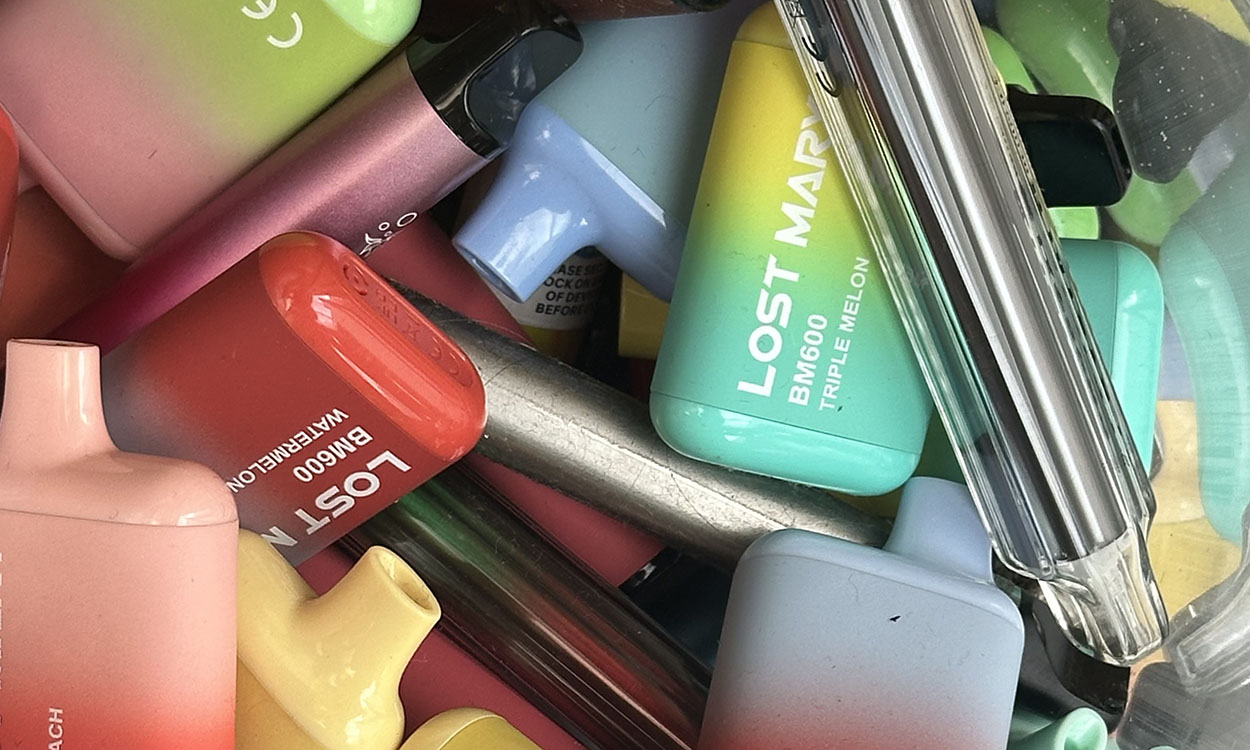The government is planning to introduce a ban on disposable vapes coming into force from June next year. The Department for Environment, Food and Rural Affairs (Defra) has confirmed new legislation to ban the sale of single-use vapes starting from 1 June 2025. The ban will apply to all vapes that are not rechargeable or refillable.The ban on disposables is being introduced to address the growing use of vapes by children. But will this lead to a rise in illegal vapes instead?
Vapes are an effective aid to help people quit smoking. However, there are vapes being supplied that do not meet UK safety standards. There is also growing concern about the use of vapes by children. In the last financial year (2023/2024) Cornwall Council seized 312 illegal vapes.
A Cornwall Coucil spokesperson said “Cornwall Council would like to remind retailers that it is illegal to sell vapes to anyone aged under 18. The Council’s Trading Standards team is working to remove vapes that have not been approved by the Medicine and Healthcare products Regulatory Agency (MHRA) from the supply chain.If you know a seller who is supplying non-compliant vapes or selling any form of vape to children, please report it to Trading Standards via the Citizens Advice Consumer Service or email TSintel@cornwall.gov.uk. You can check if a product is compliant by searching the MHRA’s online database or via VapeClick.”
Illegal vapes being sold to children through social media such as Snapchat may have illegal substances like spice and cannabis added, and nicotine levels can be far higher than disposable vapes currently on sale. The sale of vapes is already prohibited to under 18’s and many stores operate a challenge 25 policy for these products.
Alex Fry, operations manager for Heart of the South West Trading Standards, which covers all of Devon and Somerset, said his team seized about 8,000 illegal vapes in 2023. He said some illegal vapes seized had five times the legal level of nicotine as well as substances such as nickel and often had faulty electrics which could lead to fire risks.
Mr Fry said illegal vapes were “targeted” at young people with some disguised as objects such as highlighter pens to make it easier to smuggle them into school. Around 5 million people use vape or e-cigarette, according to the Office for National Statistics, and nearly 16% are 16-24-year-olds. The number of people in England who vape despite never having been regular smokers has increased significantly, according to research published in The Lancet
Single-use vapes are sold in bright colours, and come in sweet and fruity flavours like pink lemonade, gummy bear and watermelon. The Royal College of Paediatrics and Child Health has previously called for a ban as it warned that “youth vaping is fast becoming an epidemic among children”.
However, vaping is positively associated with quitting smoking successfully. Findings from a recent report commissioned by Public Health England, (PHE) demonstrated that e-cigarettes are the most popular aid used in quit attempts.In 2020, 27.2% of people used a vaping product in a quit attempt in the previous 12 months, compared with 15.5% who used nicotine replacement therapy over the counter or on prescription. In 2020, more than half of the e-cigarette users in Great Britain were ex-smokers. Among all ex-smokers, nearly one in ten regularly used e-cigarettes.
Action on Smoking and Health (ASH) says that evidence to date shows that e-cigarettes are substantially less harmful than cigarettes and can be effective for helping people quit smoking.E-cigarettes have caused much debate among the public health community, with some taking a cautionary approach whereas others see e-cigarettes as an innovation which is supporting hardened smokers to quit.

